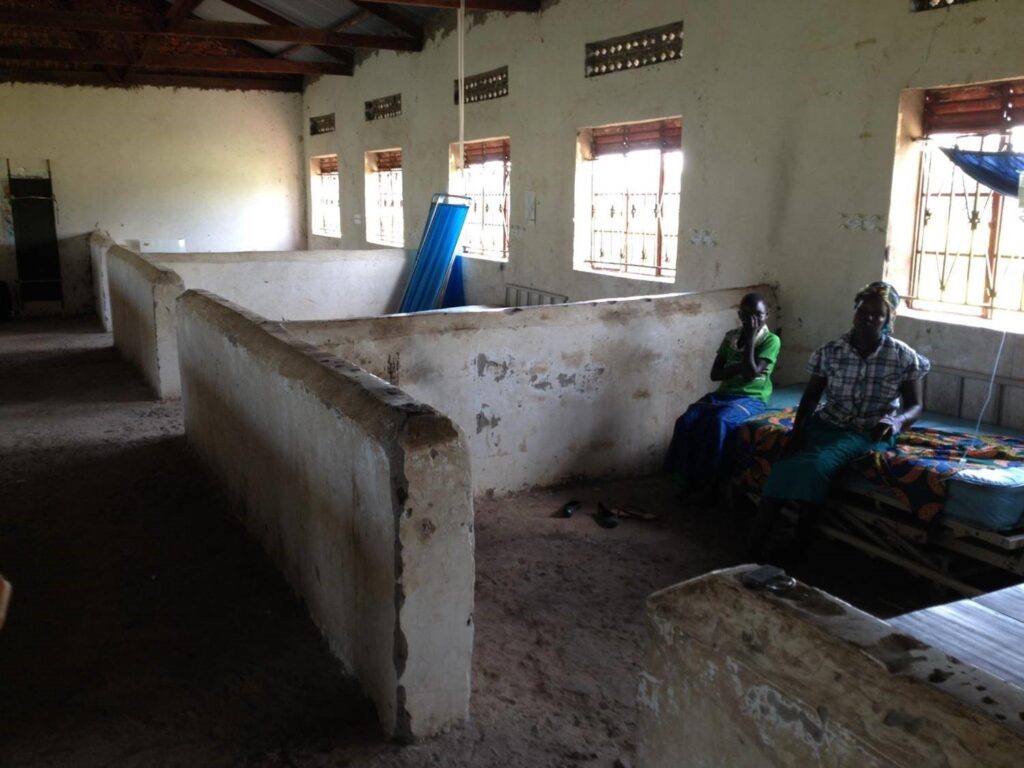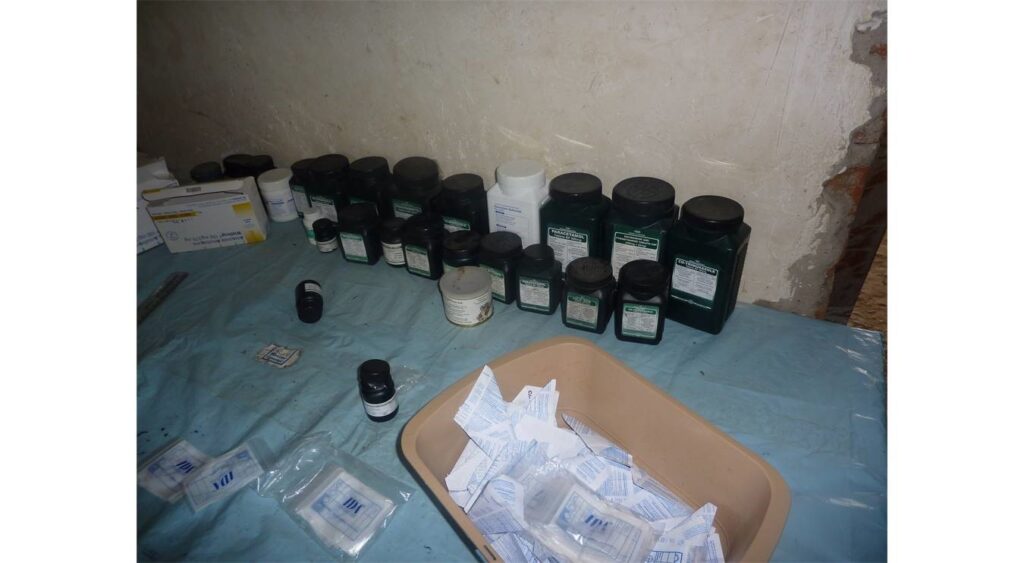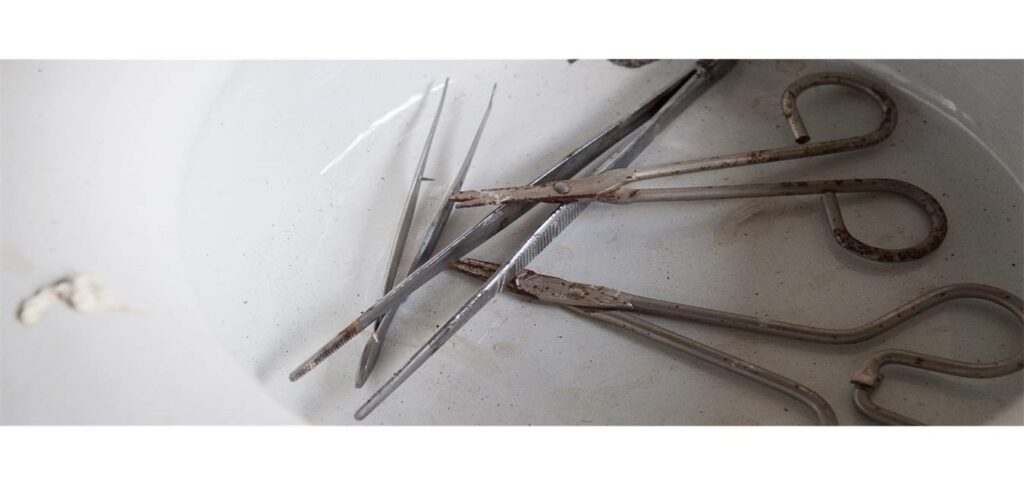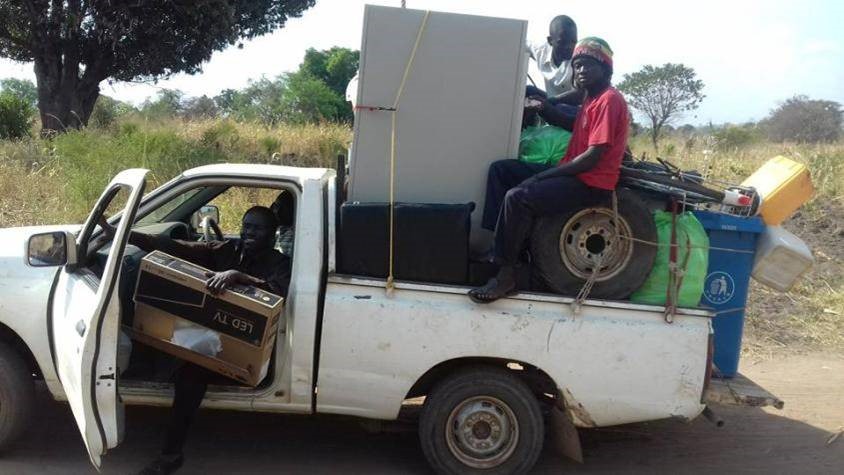The Arua Clinic Story
Our involvement with the Arua Clinic, and Caroline Lamb and CRESS UK, began in 2016 and now involves working closely with Caroline Lamb and her team in both the UK and in Uganda.
The clinic has survived and evolved through both good and difficult times since about 2014 and this is a short story of that journey.
It began in 2014 when Caroline was visiting South Sudan and the village of Liwolo. At that time the clinic consisted of a grass covered enclosure with a more established but disused old medical centre a few hours walk from the main village.
Medical supplies were very limited, with few medicines and medical equipment. As you can see, in the picture below, their medicine supplies were very limited. And they had already run out of their most important medicine for anti malarial treatment.
In fact equipment and supplies of any type were almost impossible to find given their remote location, their poverty and inability to find supplies to purchase when they found some funds. Often, they were reliant on second hand supplies from passing NGOs.
Through much effort, Caroline and CRESS UK were able to gather financial and medical supply donations so that eventually in 2015 a two room building was constructed to serve the local South Sudan community of 40,000. It was staffed with a medical student and a nurse, both in their first year of medical training. They were supported by Cress clinicians (UK based), who visited every year in September and January for two weeks.
The success of the clinic was shown in early 2016 when a UN team was passing through the area. Headed up by two UK Engineers, they had an urgent need for medical help for two of their workers – for a gunshot wound trauma and a broken leg. The clinic team quickly and effectively provided treatment. The UN Engineer later reported back that in his 30 years of working across Africa it was only the second time he had experienced a locally trained and staffed medical team able to handle such emergencies so proficiently. It truly reflected the dedication and skill of the local staff supported by ongoing training from Cress clinicians.
Unfortunately, in January 2017, a South Sudan insurgency group overran the region forcing the population to flee to northern Uganda and seek refuge in the bush and refugee settlements. With huge effort the locals were able to remove the clinic’s medical equipment and supplies and transport them over the Ugandan border at night where they were able to re-establish the clinic.
Since 2017 it has been forced to repeatedly move, however in the past year Caroline and her team finally established a permanent base in Koboko in the Arua District of Uganda. Arua is home to 178,481 South Sudanese refugees and nearly 900,000 locals. Unfortunately, the existing Ugandan health services have struggled to meet the overwhelming demand to cope with the influx. Many refugees must walk up to 6 kilometres to reach the nearest health centre, sometimes resorting instead to traditional remedies or selling food rations to afford transportation to a health centre.
The clinic is now equipped and staffed to provide essential care to treat common and serious health conditions such as Malaria, Pneumonia, Diarrhoea, Diabetes, Hypertension, Typhoid, Brucellosis, and various skin conditions. Beyond the clinic, Caroline and CRESS UK run outreach projects including hygiene training, maternal health initiatives, hygiene education, trauma recovery and Children’s Accelerated Trauma Therapy (CATT).
In summary, we are very committed to supporting and helping Caroline and CRESS UK in their work to provide and improve healthcare access for displaced South Sudanese refugees and the surrounding Ugandan communities.
To learn more about the clinic’s work and how you can contribute to its continued success please visit CRESS UK.




